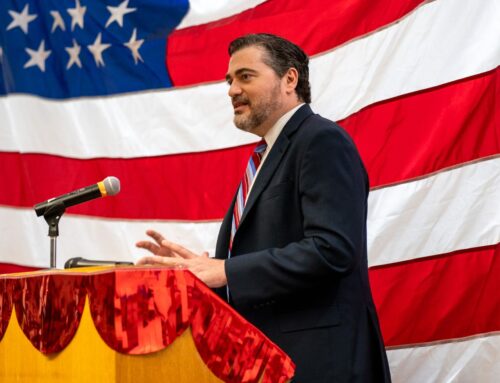Expert Analysis
Law360 (August 31, 2020) | Donald Hayden and Ibrahim Amir
Title 28 of the U.S. Code, Section 1782 can be a powerful tool for parties looking to collect evidence for use in international arbitration. Upon application by any interested person, Section 1782 authorizes a U.S. district court to order a person or an entity found in that district to provide information or documents “for use in a proceeding in a foreign or international tribunal.”
As long as the statutory requirements are satisfied, a U.S. district court has broad discretion to order both the production of documents and the deposition of witnesses in aid of these foreign proceedings.
The U.S. Supreme Court dealt with this valuable vehicle for obtaining U.S.-style discovery only in one case, in 2004. In Intel v. Advanced Micro Devices,[1] the Supreme Court listed the discretionary factors for district courts to consider in granting or denying an application made under Section 1782.
The Supreme Court, however, did not specifically address arbitration in that case, but cited a scholarly article that suggested that the term “tribunal” under Section 1782 may include private tribunals.[2] This citation in the court’s decision has prompted confusion among practitioners and led to a clearly defined split among the lower courts on whether the Supreme Court meant Intel to cover private arbitrations.
In the 16 years since the Supreme Court ruling in Intel, both scholars and practitioners have continued to struggle with the question whether the term “foreign or international tribunal” covers private international commercial arbitrations and investor-state arbitrations.
Most lower courts, of late, have interpreted the statute broadly to include both commercial and investor state arbitration. However, the U.S. Court of Appeals for the Second Circuit, a generally pro-arbitration jurisdiction, has reaffirmed its position — first articulated 20 years ago — that Section 1782 does not provide for discovery to aid private arbitration.
The Split Among Circuit Courts of Appeals
The specific issue that draws the split between the U.S. Circuit Courts of Appeals is whether private arbitral bodies qualify as foreign tribunals under the term “foreign or international tribunal.”
The U.S. Courts of Appeals for the Fourth and Sixth Circuits said yes, but the U.S. Courts of Appeals for the Second and Fifth Circuits disagreed. In addition, the U.S. Courts of Appeals for the Third, Seventh and Ninth Circuits will soon weigh in on one side or another of this split, as they are currently hearing this issue on appeal.[3]
Prior to Intel, the Second and Fifth Circuits had ruled, in 1999, that Section 1782 could not be used to obtain discovery in aid of private commercial arbitrations.[4]
The Second Circuit and the Functional Approach
Most recently, on July 8, the Second Circuit in In re: Guo held that Section 1782 does not permit discovery for use in private international arbitration.[5]
In this decision, the Second Circuit adopted a functional approach to conclude that the China International Economic and Trade Arbitration Commission does not qualify as a foreign or international tribunal within the meaning of Section 1782. The court, in fact, reaffirmed its 1999 ruling in National Broadcasting Co. v. Bear Stearns & Co.[6] and held that it remains good law.
The Sixth Circuit and the Textualist Approach
Last year, in a first-of-its-kind decision, the U.S. Court of Appeals for the Sixth Circuit extended Section 1782 to private commercial arbitrations. The court ruled in Abdul Latif Jameel Transp. Co. v. FedEx Corp.[7] that Section 1782 may be invoked in aid of private commercial arbitrations.
Unlike the functional approach adopted by the Second Circuit in Guo, the Sixth Circuit engaged in a thorough textual analysis in its decision. The court examined the plain meaning of the term “tribunal” in dictionaries, legal writings and other parts of the statute to conclude that there was no reason to exclude private arbitral tribunals from that definition. The court noted that resort to the statute’s legislative history and policy considerations was unwarranted in light of the statute’s clear and explicit text.
The Fourth Circuit
On March 30, the U.S. Court of Appeals for the Fourth Circuit ruled in Servotronics Inc. v. Boeing Co.[8] that a private arbitration in the U.K. qualified as a tribunal under Section 1782. In reaching this conclusion, the Fourth Circuit examined the purpose and history of Section 1782, including Congress’ policy to “increase international cooperation by providing U.S. assistance in resolving disputes before not only foreign courts but before all foreign and international tribunals.”[9]
How the Supreme Court May Resolve the Circuit Split
While no petition for certiorari has yet been filed, we, like many other commentators, anticipate that the issue is certainly ripe for the Supreme Court, in part because we also see several of the pro-arbitration justices supporting a certiorari petition on this issue for resolution possibly in this next term.
If Section 1782 discovery to aid private international arbitration is allowed by the Supreme Court, it will be a valuable tool across the board for practitioners involved in international arbitration disputes no matter the situs of the hearings.
Looking at the different approaches adopted by the circuit courts, several factors signal that the Supreme Court will likely side with the textualist approach adopted by Sixth Circuit and rule that Section 1782 can be invoked in aid of private commercial arbitrations as well as in investor-state arbitrations.
First, in its recent decisions over the past several years, the Supreme Court has shown that the high court is pro-arbitration and pro-business. In June, the Supreme Court handed down a landmark arbitration-related decision. In GE Energy v. Outokumpu,[10] where the Supreme Court ruled that the New York Convention on the Recognition and Enforcement of Foreign Arbitral Awards does not prevent nonsignatories from enforcing arbitration agreements under principles of equitable estoppel.
Second, when it comes to interpreting Section 1782, the Supreme Court will likely favor the textualist approach adopted by the Sixth Circuit, rather than looking at Section 1782’s legislative history as other circuits did. In fact, the Supreme Court, in one of its recent decisions, adopted the textualist approach in interpreting the text of Title VII of the Civil Rights Act.[11]
In Bostock v. Clayton County, the Supreme Court held that when the meaning of the statute’s terms is plain, a court’s job is at an end and whether a specific application was anticipated by Congress is irrelevant.[12] The court further noted that only the written word is law and legislative history is meant to clear up ambiguity, not create it.[13]
Third, Justices Neil Gorsuch and Brett Kavanaugh, the last two additions to the Supreme Court, have consistently been described as textualist judges prior to their nomination to the court. These additions further deepen the textualists bench.
Adding the pro-arbitration bias of the Supreme Court as a whole to all the above, we anticipate that the court will decide in favor of allowing Section 1782 discovery in international disputes before both commercial arbitration panels and investor-state panels.
Despite our reading of the tea leaves on the Supreme Court’s ultimate resolution of this issue, for now, there is still a clear dispute on Section 1782 among the circuit courts. As a result, parties in international arbitration intending to make an application under Section 1782 need to be strategic when considering in which district court to file their petitions.
Donald Hayden is a founding partner and Ibrahim Amir is a summer associate at Mark Migdal & Hayden.
Notes:
[1] Intel Corp. v. Advanced Micro Devices, Inc., 542 U.S. 241 (2004).
[2] 542 U.S. at 25 (quoting Hans Smit, International Litigation Under the United States Code, 65 Colum. L. Rev. 1015, 1026 n.71 (1965).
[3] See Servotronics, Inc. v. Rolls-Royce PLC, No. 19-1847 (7th Cir.) (oral argument held Sept. 19, 2019); EWE Gasspeicher GMBH v. Halliburton Co., No. 20-1830 (3d Cir.) (briefing in progress); Storag Etzel GMBH v. Baker Hughes Co., No. 20-1833 (3d Cir.) (briefing in progress); HRC-Hainan Holding Co. v. Hu, No. 20-15371 (9th Cir.) (oral argument scheduled for Sept. 14, 2020).
[4] Republic of Kazakhstan v. Biedermann Int’l , 168 F.3d 880 (5th Cir. 1999); National Broadcasting Co. v. Bear Stearns & Co. , 165 F.3d 184 (2d Cir. 1999). The Fifth Circuit reaffirmed the Biedermann holding in 2009 in the case of El Paso Corp. v. La Comision Ejecutiva Hidroelectrica Del Rio Lempa, 341 F. App’x 31 (5th Cir. 2009).
[5] Hanwei Guo v. Deutsche Bank Securities, No. 19-781, 2020 WL 3816098 (2nd Cir. 2020).
[6] National Broadcasting Co. v. Bear Stearns & Co., 165 F.3d 184 (2d Cir. 1999).
[7] Abdul Latif Jameel Transp. Co. v. FedEx Corp., 939 F.3d 710 (6th Cir. 2019).
[8] Servotronics Inc. v. Boeing Co. image, 954 F.3d 209 (4th Cir. 2020).
[9] Id. at 213.
[10] GE Energy v. Outokumpu, 140 S. Ct. 1637 (2020).
[11] Bostock v. Clayton County, 140 S. Ct. 1731 (2020).
[12] Id at 1749, 1752.
[13] Id at 1737, 1752.




